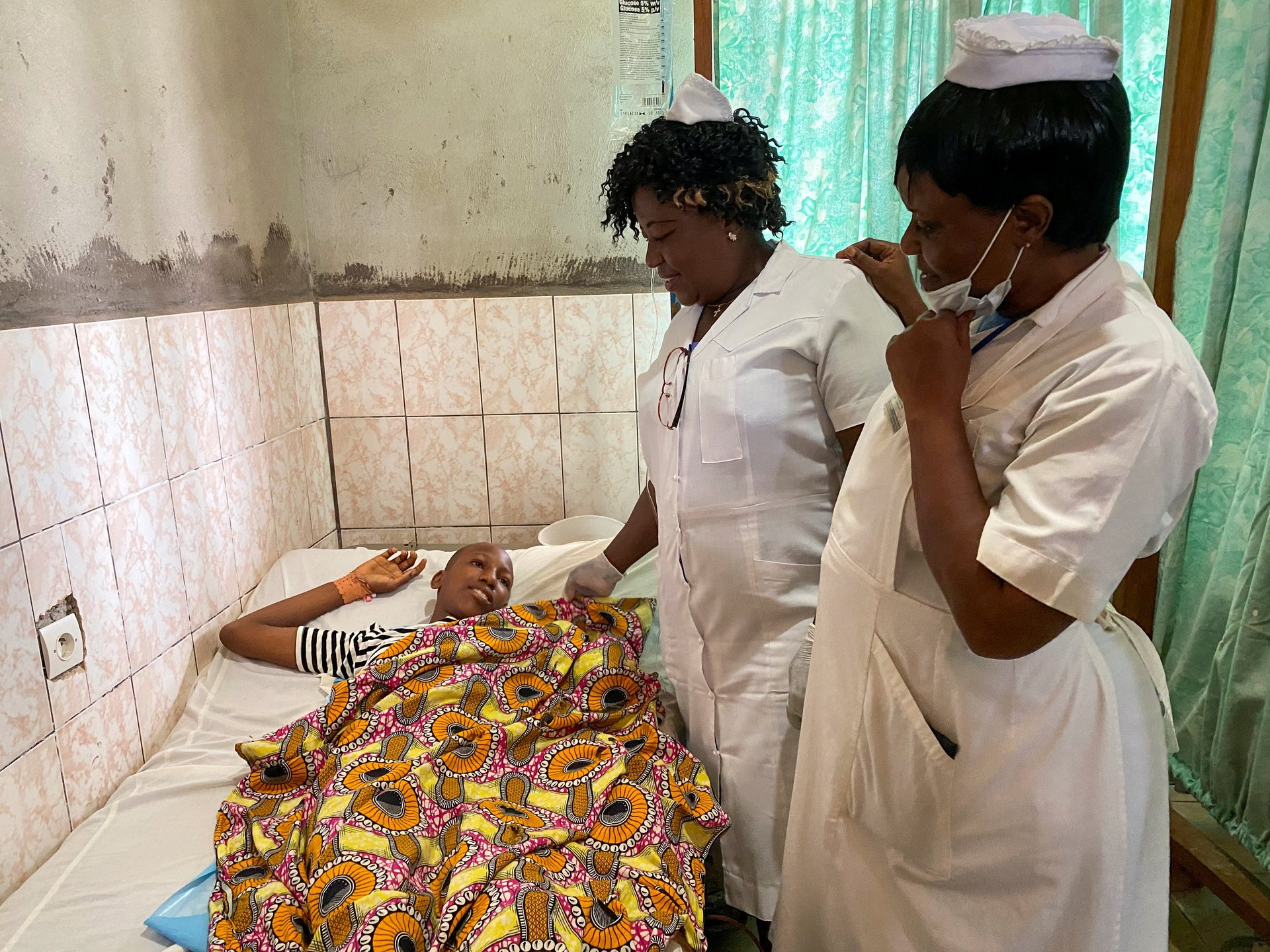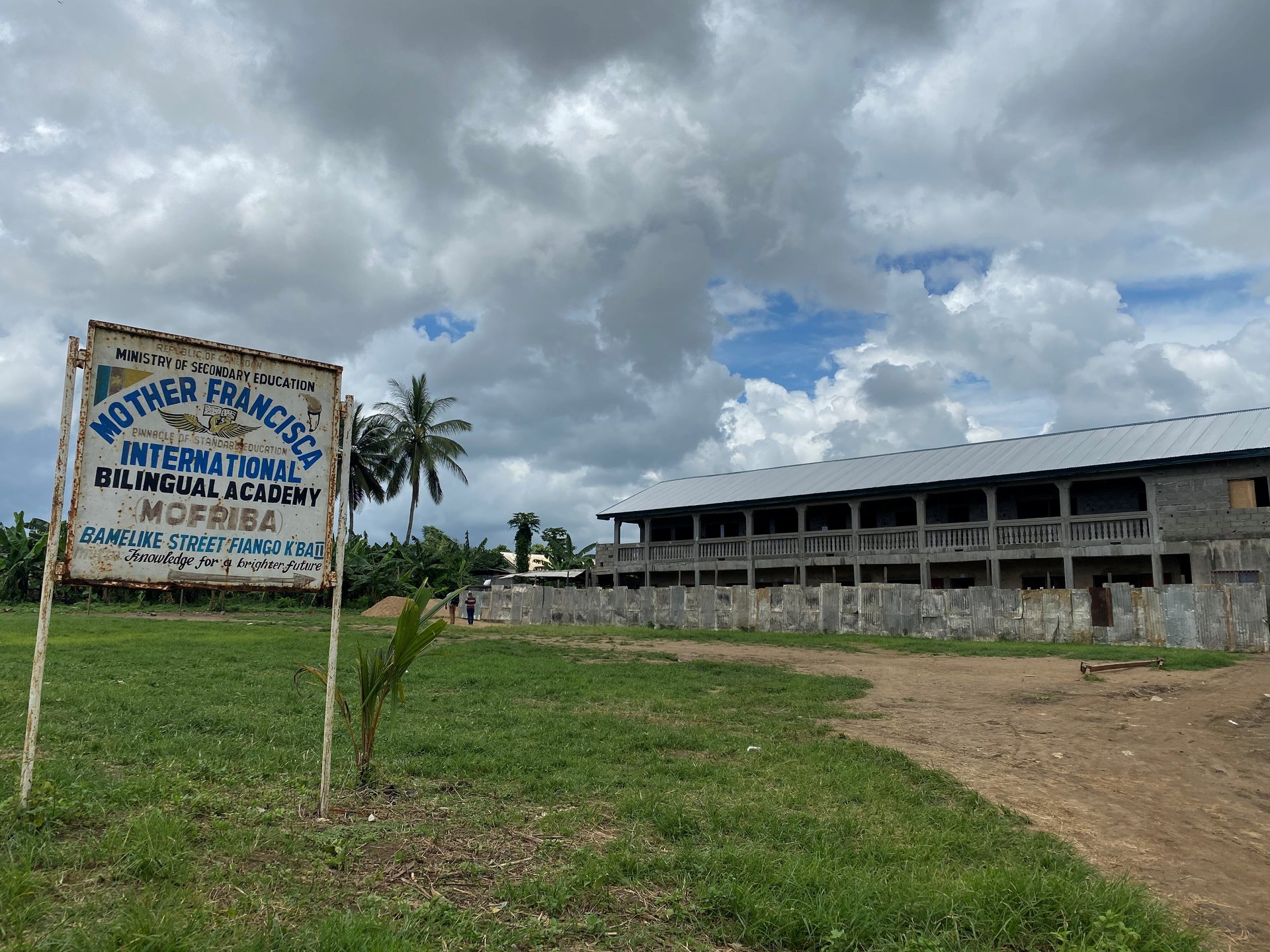Cameroon’s Anglophone crisis is back on the global agenda after school children are killed by gunmen
Cameroon’s long drawn-out, neglected Anglophone crisis has again come under a harsh global spotlight with the killing of at least six school children in the country’s troubled southwest region.


Cameroon’s long drawn-out, neglected Anglophone crisis has again come under a harsh global spotlight with the killing of at least six school children in the country’s troubled southwest region.
On Saturday (Oct. 24), unidentified men armed with assault rifles stormed the campus of Mother Francisca International Bilingual Academy in Kumba, about 45 miles from commercial city Douala, and opened fire on the schoolchildren who were on average under 14 years old. The fatal shooting left five girls and one boy dead and 13 others injured, according to official sources.
No group has so far claimed responsibility for the killings but the government and the region’s separatists have been trading accusations at each other.
Saturday’s shooting has sparked widespread condemnation in the country and around the world with Cameroon diaspora helping to raise global awareness online with the social media hashtag, #EndAnglophoneCrisis. Kumba locals organized a protest march across the city in solidarity with victims of the attack. For its part, the government condemned the killings and saying it was “shocked and deeply outraged” and that it will open investigations to track down the culprits.
The school was attacked on Saturday as students were trying to catch up with their classes due to the region’s “Ghost Town” operation every Monday which shuts down schools and businesses in a move enforced by local separatists in their push to establish an independent state known as “Ambazonia”.
Erupted
Cameroon’s so-called separatist Anglophone crisis erupted in 2016 as low-level protests over the real and perceived marginalization of Anglophones by the Francophone-dominated government. Modern Cameroon was created by amalgamation of former British colony regions of neighboring Nigeria with the France-colonized regions of Cameroon.
The protests turned violent in 2017 when the government of president Paul Biya used force to squash protests by the minority Anglophones. From the onset, the government’s instincts have been to respond to Anglophone dissent with force. But the military option has not proven successful since then as over 5,000 soldiers, separatist fighters, and civilians have been killed.

Since then the conflict has worsened with intermittent horrors over the last two years increasingly featuring vulnerable schoolchildren. As of last year, close to 1 million children remained out of school due to the conflict, according to UNICEF, while 80% of schools remained closed in the North-West and South-West regions.
School boycott has been a strategy initially used by Anglophone teachers’ trade unions to pressure the government to yield to some of its demands. But the government’s response was considered slow and inadequate, pushing Anglophone hardliners to capitalize on the school boycott strategy.

Since 2017 when the initially modest protest turned violent, teachers, students, and other education stakeholders, who have been found disrespecting the school boycott, have either been kidnapped, severely tortured, or killed. In 2018, 78 school children were kidnapped from a school in Bamenda in an attack similar to Nigeria’s Boko Haram Chibok girls attack.
As Cameroon’s Anglophone crisis gets bloodier, with the Norwegian Refugee Council considering it as the world’s most neglected crisis, there are no signs the conflict will soon come to an end.
Earlier this year, there was brief hope that a resolution to the crisis was in sight when jailed separatist leader Julius Ayuk Tabe announced that they had engaged in pre-negotiation talks with the government. But then, the government’s reaction showed it was yet to be interested in seeking a peaceful end to the conflict. Communication minister Rene Emmanuel Sadi said back then that the news of government getting into talks with separatists was “not consistent with reality.”
Sign up to the Quartz Africa Weekly Brief here for news and analysis on African business, tech, and innovation in your inbox